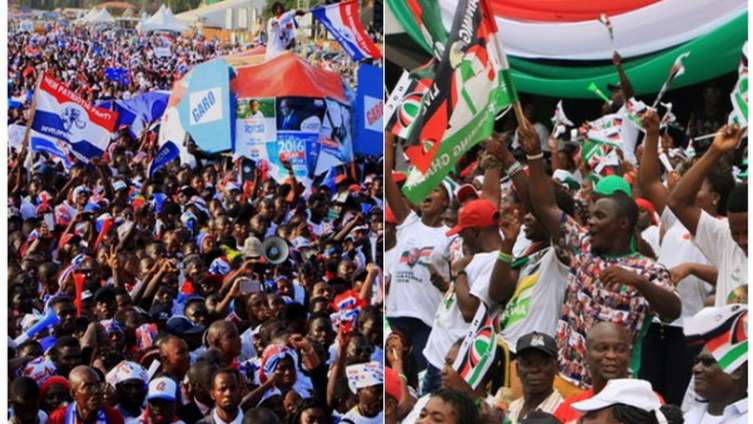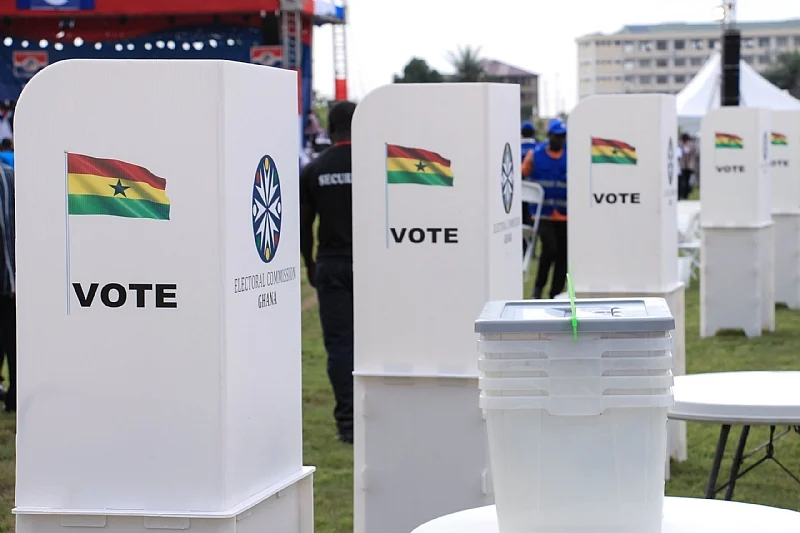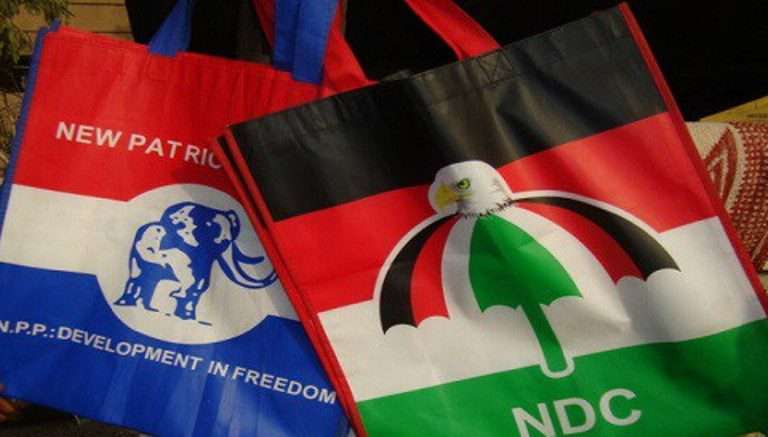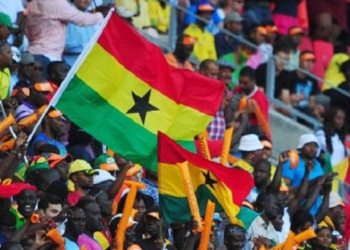New polling data on party affiliation suggests a significant shift in Ghana’s political landscape, with the ruling New Patriotic Party (NPP) losing its base to the opposition National Democratic Congress (NDC).
Mussa Dankwah, Executive Director of Global InfoAnalytics, has indicated that some former NPP supporters have become floating voters, while others have shifted allegiance to different parties.
According to the poll, the NPP’s core support has dropped sharply from 37% in November 2024 to just 21% in February.
Meanwhile, the NDC’s support has surged from 33% to 55% in the same period. This shift highlights a major political realignment post-elections.
“The proportion of voters who refuse to disclose their party affiliations drops drastically from 10% to 3% and appear to belong to NDC all along by majority according to the poll. This data will be updated in 10 days to include Greater Accra”.
Mussa Dankwah

Accordingly, Mussa Dankwah emphasized that party affiliation is a crucial factor in determining the outcome of future elections.
He noted that the tracking of party loyalty will continue through to 2028, which is Ghana’s next election year.
Regional Breakdown of Party Affiliations
The poll also provided detailed regional insights into post-election party affiliations across various parts of Ghana.
In the Western North Region, the NDC secured 51% of party affiliation, while the NPP held 17%.
Floating voters make up 16%, with 13% aligning with other parties, and 3% remaining undisclosed.
The Western Region showed a strong preference for the NDC, which commands 68% support.

The NPP trailed with 11%, floating voters account for 12%, other parties claim 7%, and 2% of respondents have not disclosed their affiliation.
In the Volta Region, the NDC led with 58%, while the NPP lags at 5%.
A significant 31% of voters remained undecided, 5% supported other parties, and 1% did not disclose their preference.
“Upper West Region: NDC (61%), NPP (24%), Floating voters (6%), Other parties (6%), Undisclosed (3%). Upper East Region: NDC (66%), NPP (14%), Floating voters (10%), Other parties (6%), Undisclosed (4%).
“Savannah Region: NDC (63%), NPP (18%), Floating voters (13%), Other parties (4%), Undisclosed (2%). Oti Region: NDC (48%), NPP (21%), Floating voters (21%), Other parties (12%), Undisclosed (2%). Northern Region: NDC (62%), NPP (17%), Floating voters (15%), Other parties (3%), Undisclosed (3%)”.
Mussa Dankwah
The polls in the North East Region reflected an NDC stronghold with 58%, followed by the NPP at 29%.
Floating voters accounted for 6%, 4% back other parties, and 3% remained undisclosed.
In the Central Region, the NDC holds 43%, the NPP follows closely with 29%, and floating voters make up 13%.
Another 11% support other parties, while 4% have not disclosed their preference.
Bono East Region data showed 54% affiliation to the NDC, 17% to the NPP, and 15% of voters remaining undecided.
Meanwhile, 10% back other parties and 4% have kept their affiliation undisclosed.
Special polls conducted in the Bono Region indicate that 48% support the NDC, 26% favor the NPP, and 16% remain floating voters.
Another 5% support other parties, while 5% have not disclosed their preference.
In the Ashanti Region, special poll results revealed a close contest, with the NDC securing 38% and the NPP following with 37%.
Floating voters accounted for 12%, 10% supported other parties, and 3% remained undisclosed.
Finally, special polls in the Ahafo Region showed the NDC at 55%, the NPP at 24%, and floating voters making up 19%.
Other parties received 1%, while another 1% of respondents have not disclosed their affiliation.
Implications for Future Elections
The sharp decline in NPP’s support and the corresponding rise in NDC’s popularity suggests a possible shift in voter sentiment as Ghana moves toward the next election cycle.
If these trends continue, the political landscape could be dramatically different in the coming years.

The significant number of floating voters in some regions, particularly in Volta (31%), Bono (16%), and Savannah (13%), indicates that a substantial segment of the electorate remains undecided.
This presents an opportunity for both major parties to intensify their outreach efforts.
Additionally, the growing decline in undisclosed voters suggests that more people are becoming open about their political leanings, which could lead to a more transparent and competitive political environment.
Political analysts argue that if the NPP is to regain its footing, it must address the factors leading to its declining support.
Public dissatisfaction, internal party struggles, and governance concerns could be key contributors to this shift.
With party affiliation playing a crucial role in electoral outcomes, both the NPP and NDC will likely adjust their strategies to appeal to undecided voters and solidify their existing support bases.
The next few years will be crucial in shaping the future of Ghana’s political landscape.
READ ALSO: Gov’t’s Rejection of GHS2.9 Billion T-bills Signals Lower Yield On the Horizon– Annor-Sika





















